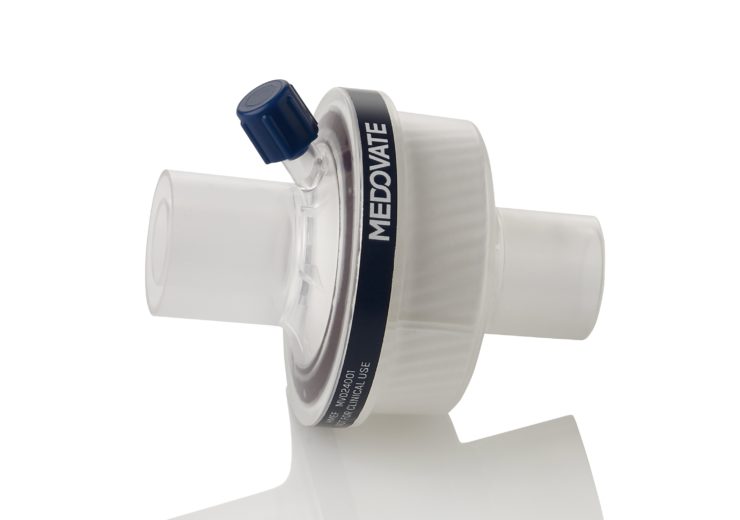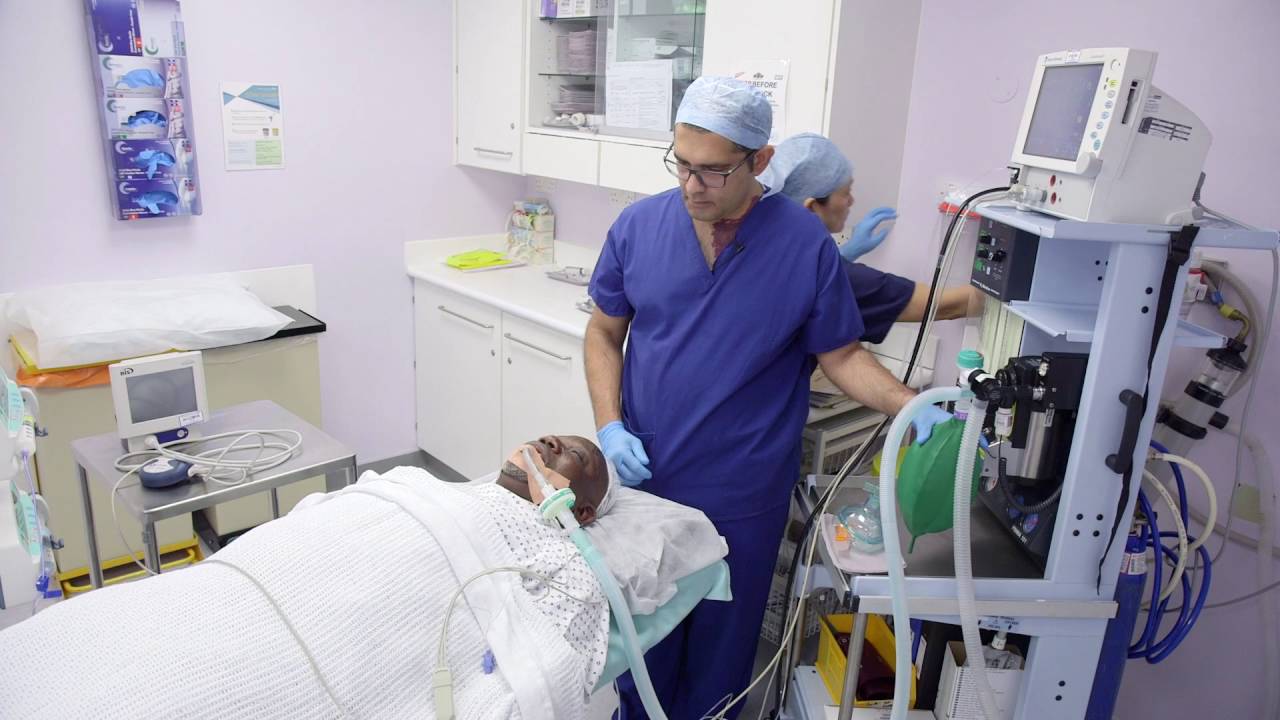Medtech company Medovate introduced its Humidicare heat and moisture exchanger to airway specialists in Amsterdam earlier this month

Medovate's heat and moisture exchanger costs the same as other devices in the same category - but has one unique feature that could save patient lives (Credit: Medovate)
Ending avoidable patient deaths under general anaesthetic is the mission for Medovate after unveiling its new Humidicare device.
The UK medtech company has developed an airway filter that detects certain dangerous situations and alerts clinicians.
While these events are rare, they come about following basic errors made by healthcare professionals, and potentially lead to patient death due to blocked airways.
Medovate managing director Stuart Thomson said that while Humidicare costs the same as established devices in this field, clinical trials have proved it can prevent the dangerous situations occurring.
Thompson added: “We very much hope the product will be widely used once we get it to market, and we believe it’s the technology that should be used in every single general anaesthetic procedure.
“In Europe and the US there are around 120 million of these procedures every year — obviously we’re a small company and we’re not going to get that kind of adoption to begin with.
“But presenting the device to 2,000 airway specialist clinicians at the World Airway Management Meeting is the first part in that journey of getting people interested.”
The life-threatening error Medovate is trying to prevent with Humidicare
During any surgery requiring a general anaesthetic, an endotracheal tube attached to a breathing machine is inserted into the patient’s airways to pump air into their lungs.
These procedures require an ambient breathing circuit, and because the air produced by these machines is dry, a heat and moisture exchanger (HME) is required to humidify it.
However, any complications during the surgery could mean the patient is moved to an intensive care unit.
When this happens, they will also be moved onto a different type of breathing machine called a heated humidified circuit — this provides heat and moisture for the patient itself, making the HME redundant.

Not only is the HME no longer needed, but it can become clogged with mucus from the airways over time if it is left on the endotracheal tube once the breathing machine has been changed over.
This leads to the airways becoming blocked and can send the patient into respiratory distress — potentially resulting in a fatal outcome in extreme cases.
While this is rare, it is what the UK’s National Health Service (NHS) refers to as a “never event” — a serious incident that’s wholly preventable, and should never occur.
And with thousands of general anaesthetic procedures being performed every year, these incidents remain a real threat in Europe and the US, according to Thomson.
How does Humidicare ensure clinicians remove the HME device?
Humidicare is Medovate’s heat and moisture exchanger, and as long as it is placed on the right breathing circuit, it functions in the same way as any other HME filter.
However, the moment it detects it has been attached to a heated humidified circuit, it will turn yellow to warn the clinician that it is on the wrong breathing system.
When it lights up, the clinician knows immediately that there is a problem, and the HME needs to be removed.

Because the HME is effectively sticking out of the patient’s mouth, it is immediately noticeable, making it much less likely the clinician will forget to remove it, says Thomson.
He added: “Over the last year we’ve really honed the detection system so that it always changes colour when it’s supposed to.
“Sometimes simple ideas are the best ones – there are other companies working in the same space, trying out very sensitive electronic sensors, but they are a lot more expensive for the healthcare system.”
Having been through successful clinical trials, Thomson hopes Humidicare will reach the market and gain NHS adoption in 2020.
